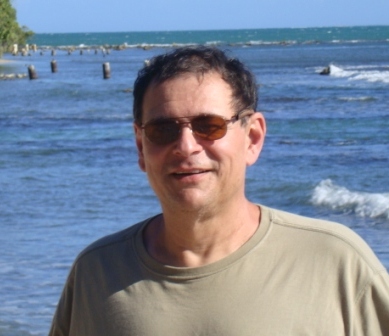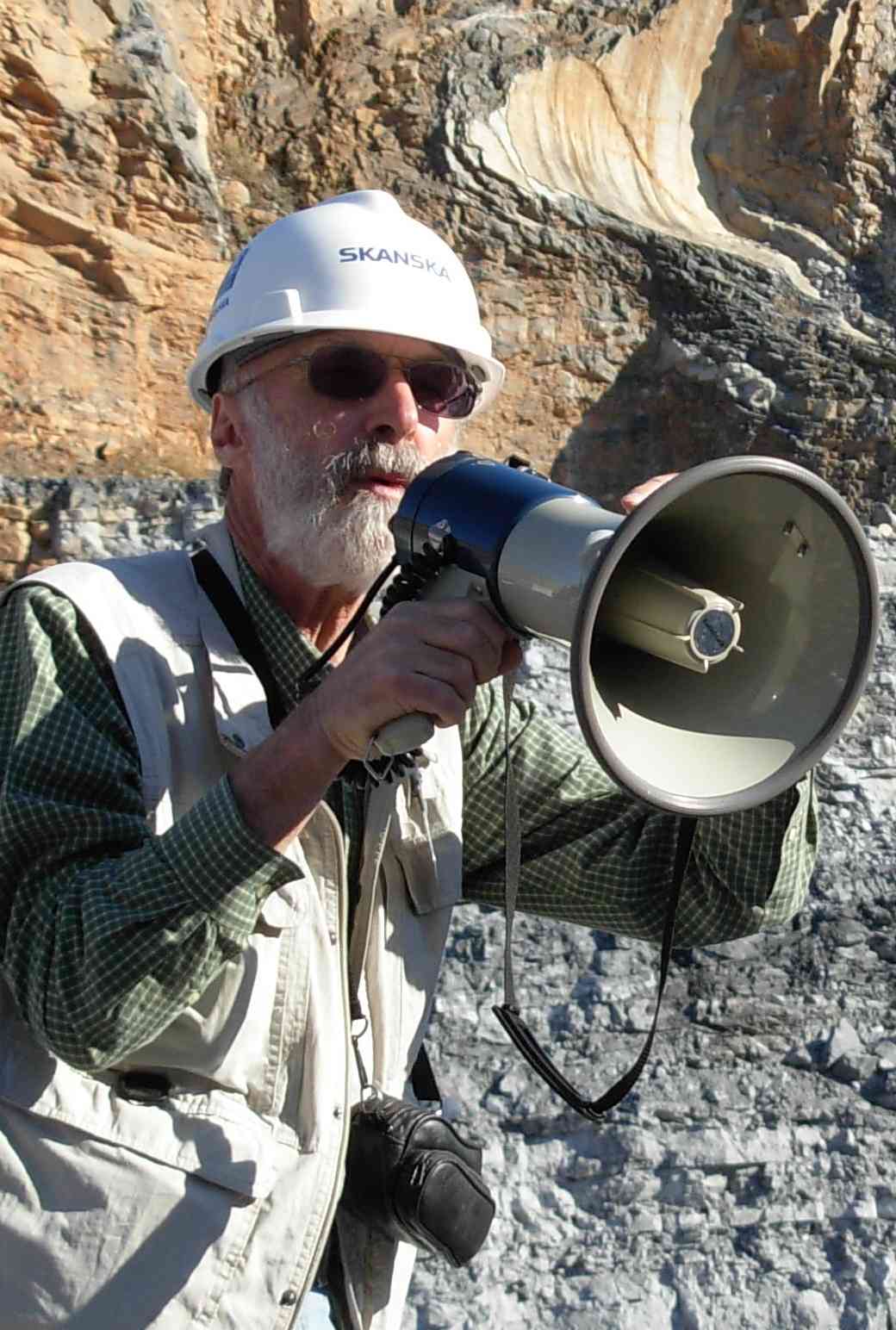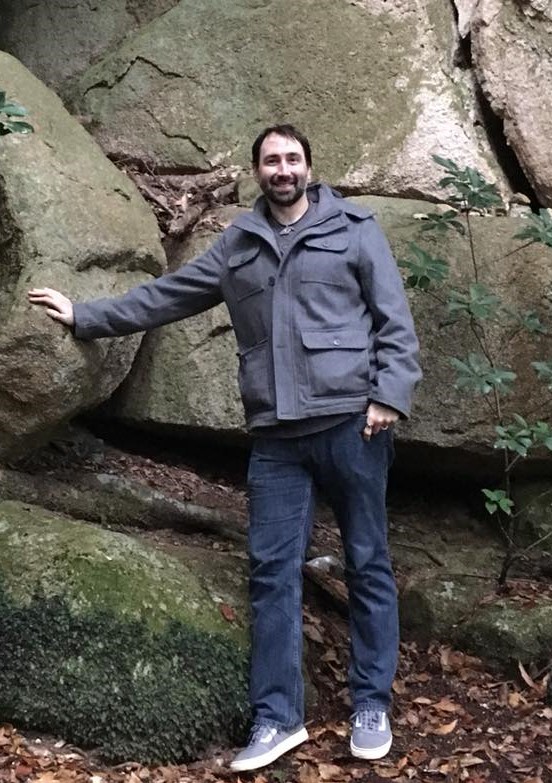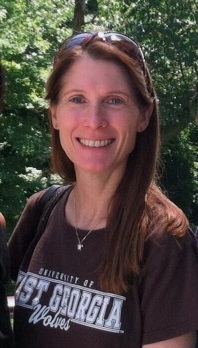Bachelor of Science with a Major in Earth and Environmental Sciences, Environmental Sustainability
The Environmental Geology concentration prepares students to work in conservation, management and remediation of natural resources. This concentration includes a wider variety of courses than Professional Geology and requires more Biology and Chemistry. Students have the option of pursuing coursework in Sustainability, Geographic Information Systems and Environmental Policy.
For more information, please see the Academic Catalog. A program map, which provides a guide for students to plan their course of study, is available for download in the Courses tab below.
Geology is the study of Earth including its structure, the materials of which it is composed and the processes that shape it. Geology is also concerned with the history of Earth and its life forms, the application of geologic knowledge to the search for natural resources, and understanding how humans interact with our physical environment. It is the study of rocks, minerals and water; of fossils, shorelines and mountains; of earthquakes, volcanoes and landslides. Although geology incorporates elements of chemistry, biology and physics it puts them together in a way that provides a unique framework for understanding planet earth.
Career Opportunities
Link to Additional Career Information:
https://www.buzzfile.com/Major/Environmental-Studies
External Resource
Program Location
Carrollton Campus
Method of Delivery
Face to Face
Accreditation
The University of West Georgia is accredited by The Southern Association of Colleges and Schools Commission on Colleges (SACSCOC).
Credit and transfer
Total semester hours required: 120
This program may be earned entirely face-to-face. However, depending on the courses chosen, a student may choose to take some partially or fully online courses.
Save money
UWG is often ranked as one of the most affordable accredited universities of its kind, regardless of the method of delivery chosen.
Details
- Total tuition costs and fees may vary, depending on the instructional method of the courses in which the student chooses to enroll.
- The more courses a student takes in a single term, the more they will typically save in fees and total cost.
- Face-to-face or partially online courses are charged at the general tuition rate and all mandatory campus fees, based on the student's residency (non-residents are charged at a higher rate).
- Fully or entirely online course tuition rates and fees my vary depending on the program. Students enrolled in exclusively online courses do not pay non-Resident rates.
- Together this means that GA residents pay about the same if they take all face-to-face or partially online courses as they do if they take only fully online courses exclusively; while non-residents save money by taking fully online courses.
- One word of caution: If a student takes a combination of face-to-face and online courses in a single term, he/she will pay both all mandatory campus fees and the higher eTuition rate.
- For cost information, as well as payment deadlines, see the Student Accounts and Billing Services website
There are a variety of financial assistance options for students, including scholarships and work study programs. Visit the Office of Financial Aid's website for more information.
Downloads
General
Area F - 18 credits GEOL 1121+1121L, GEOL 1122+1122L, CHEM 1211K. Choose one from: BIOL 1107+Lab, CHEM 1212+Lab, MATH 1634, 2644, PHYS 1111, 1112, 2211, 2212
This course is the second of a two-part sequence for nursing and non-biology science majors. Topics include evolution, plant and animal physiology, and ecology.
This course is the second of a two-part sequence for nursing and non-biology science majors. Topics include evolution, plant and animal physiology, and ecology.
The laboratory component for BIOL 1108.
The laboratory component for BIOL 1108.
A practical course that familiarizes students with basic instruments and techniques used by Geologists to collect structural, stratigraphic, topographic and other data in the field.
A practical course that familiarizes students with basic instruments and techniques used by Geologists to collect structural, stratigraphic, topographic and other data in the field.
The origin and physical properties of the more common minerals and their crystal forms. Megascopic recognition of specimens, their mineral associations, and a brief introduction to modern x-ray diffraction. CHEM 1211 may be taken concurrently.
The origin and physical properties of the more common minerals and their crystal forms. Megascopic recognition of specimens, their mineral associations, and a brief introduction to modern x-ray diffraction. CHEM 1211 may be taken concurrently.
A study of the classification and origin of igneous, and metamorphic rocks. The geologic processes that form these rocks are studied by examining rock samples in the field and laboratory using hand sample, microscopic, and chemical techniques. Petrologic problems are studied at the local, regional, and global scales.
A study of the classification and origin of igneous, and metamorphic rocks. The geologic processes that form these rocks are studied by examining rock samples in the field and laboratory using hand sample, microscopic, and chemical techniques. Petrologic problems are studied at the local, regional, and global scales.
The recognition, description, and interpretation of primary and secondary rock-structures. Laboratory and field periods will be spent using both graphical and instrumental techniques necessary for describing and interpreting common structural deformation features. In addition to laboratory and classroom examples, each student is required to complete a lithologic and structural mapping project.
The recognition, description, and interpretation of primary and secondary rock-structures. Laboratory and field periods will be spent using both graphical and instrumental techniques necessary for describing and interpreting common structural deformation features. In addition to laboratory and classroom examples, each student is required to complete a lithologic and structural mapping project.
Students will be introduced to the Polarizing microscope and to the techniques for the identification of minerals in thin section.
Students will be introduced to the Polarizing microscope and to the techniques for the identification of minerals in thin section.
The description, classification and interpretation of sedimentary rocks. Using observations from modern sediments, and hand specimens and thin sections of sedimentary rocks, students will apply the principle of uniformity to interpret sedimentary processes and environments.
The description, classification and interpretation of sedimentary rocks. Using observations from modern sediments, and hand specimens and thin sections of sedimentary rocks, students will apply the principle of uniformity to interpret sedimentary processes and environments.
Detailed assignments in specific areas of geology. Satisfies deficiencies or permits in-depth pursuit of the student's research in particular geological topics. Title to be supplied at the time of offering.
Detailed assignments in specific areas of geology. Satisfies deficiencies or permits in-depth pursuit of the student's research in particular geological topics. Title to be supplied at the time of offering.
An investigation of groundwater and the earth's hydrologic cycle. Examines the physical aspects of groundwater occurrence and movement, and provides an introduction to contaminant transport and chemical hydrogeology. Lab exercises will acquaint students with hydrogeology field methods and equipment.
An investigation of groundwater and the earth's hydrologic cycle. Examines the physical aspects of groundwater occurrence and movement, and provides an introduction to contaminant transport and chemical hydrogeology. Lab exercises will acquaint students with hydrogeology field methods and equipment.
A program of study, discussion, readings, and presentations concerning the significant interrelationships of a wide variety of basic geological concepts. Topics may also include career paths, licensing and other matters concerning the profession of Geology. Advanced geology students, faculty, and outside speakers interact within a seminar framework designed to increase the geological maturity of the students. Course may be repeated 3 times for up to 3 hours.
A program of study, discussion, readings, and presentations concerning the significant interrelationships of a wide variety of basic geological concepts. Topics may also include career paths, licensing and other matters concerning the profession of Geology. Advanced geology students, faculty, and outside speakers interact within a seminar framework designed to increase the geological maturity of the students. Course may be repeated 3 times for up to 3 hours.
Major Required
In addition to the below, 6-18 upper level electives approved by advisor.
This course is the first of a two-part sequence for nursing and non-biology science majors. Topics include biomolecules, cell structure and function, energy metabolism, photosynthesis, cell reproduction, and genetics.
This course is the first of a two-part sequence for nursing and non-biology science majors. Topics include biomolecules, cell structure and function, energy metabolism, photosynthesis, cell reproduction, and genetics.
The laboratory component for BIOL 1107. Lecture and lab must be taken in the same term.
The laboratory component for BIOL 1107. Lecture and lab must be taken in the same term.
This course is the second of a two-part sequence for nursing and non-biology science majors. Topics include evolution, plant and animal physiology, and ecology.
This course is the second of a two-part sequence for nursing and non-biology science majors. Topics include evolution, plant and animal physiology, and ecology.
The laboratory component for BIOL 1108.
The laboratory component for BIOL 1108.
Second course in a two-semester sequence covering the fundamental principles and applications of chemistry for science majors. Topics to be covered include chemical bonding, properties of solids, liquids and gases, solutions, equilibria, acids and bases, solubility, thermodynamics, kinetics and electricity. Corequisite: CHEM 1212L
Second course in a two-semester sequence covering the fundamental principles and applications of chemistry for science majors. Topics to be covered include chemical bonding, properties of solids, liquids and gases, solutions, equilibria, acids and bases, solubility, thermodynamics, kinetics and electricity. Corequisite: CHEM 1212L
This course explores the process of economic development under conditions of globalization. The focus is upon development theory, development and underdevelopment, debt and indebtedness, the construction of 'The Third World', and the creation of economic dependency. Special attention is paid to 'developing' areas or the world, including Latin America, the Caribbean, Africa, South Asia, and others, where regionalized and national economic development theories, developed in the post World War II era which have subsequently challenged the so-called Washington Consensus and American development discourses.
This course explores the process of economic development under conditions of globalization. The focus is upon development theory, development and underdevelopment, debt and indebtedness, the construction of 'The Third World', and the creation of economic dependency. Special attention is paid to 'developing' areas or the world, including Latin America, the Caribbean, Africa, South Asia, and others, where regionalized and national economic development theories, developed in the post World War II era which have subsequently challenged the so-called Washington Consensus and American development discourses.
An introduction to computer hardware, software and techniques used for acquiring, storing, analyzing, and presenting scientific data, particularly geologic and hydrologic data. Emphasis will be placed on commonly used and widely available software such as word processing, spreadsheet and database programs as well as mapping and drafting programs commonly used in the sciences.
An introduction to computer hardware, software and techniques used for acquiring, storing, analyzing, and presenting scientific data, particularly geologic and hydrologic data. Emphasis will be placed on commonly used and widely available software such as word processing, spreadsheet and database programs as well as mapping and drafting programs commonly used in the sciences.
The geochemistry of the earth's lithosphere, biosphere, hydrosphere, and atmosphere and the human modifications to these systems that cause environmental problems. Special topics include acid rain, greenhouse effect, toxic trace elements, landfills, energy usage and radon.
The geochemistry of the earth's lithosphere, biosphere, hydrosphere, and atmosphere and the human modifications to these systems that cause environmental problems. Special topics include acid rain, greenhouse effect, toxic trace elements, landfills, energy usage and radon.

Dave Bush, Ph.D.
Professor of Geology
Timothy M. Chowns, Ph.D.
Professor Emeritus of Geology
Brad Deline, Ph.D.
Professor of Geology
Randa Harris
Senior Lab Coordinator of Geology
Andrew Ivester, Ph.D.
Assistant Professor of Geography
Randal Kath, Ph.D.
Professor of Geology
Karen Tefend, Ph.D.
Professor of GeologyGuidelines for Admittance
Each UWG online degree program has specific requirements that you must meet in order to enroll.
- Complete online application. A one-time application fee of $40 is required.
- Official transcripts from all schools attended. Official transcripts are sent from a regionally or nationally accredited institution.
- Verify specific requirements associated with specific populations identified here: Freshman Adult Learners Transfer International Home School Joint / Dual Enrollment Transient Auditor Post-Baccalaureate Non-Degree Seeking Readmission
Application Deadlines
Undergraduate Priority Deadlines
Fall Semester - June 1
Spring Semester - November 15
Summer Semester - May 15
Admission Process Checklist
Check your Application Status
Contact
Contact the Office of Undergraduate Admissions for additional information.
Specific dates for Admissions (Undergraduate only), Financial Aid, Fee Payments, Registration, Start/End of term, Final Exams, etc. are available in THE SCOOP.
- Demonstrate understanding of the fundamental principles of the science of geology.
- Demonstrate ability to perform basic geologic field tasks including map reading/construction, field notebook composition, outcrop description, sampling, and surveying.
- Demonstrate ability to communicate geologic ideas in written format.
- Demonstrate ability to communicate geologic ideas in oral format.
- Participate in original scientific research.
